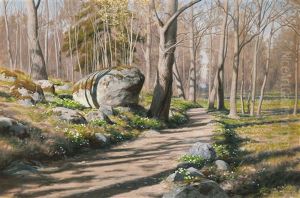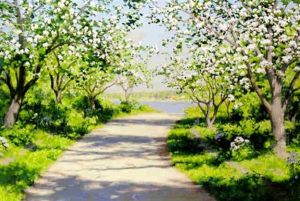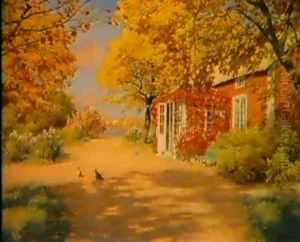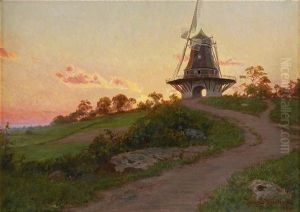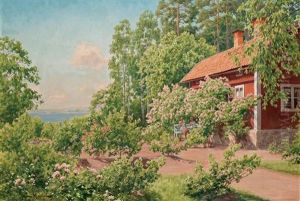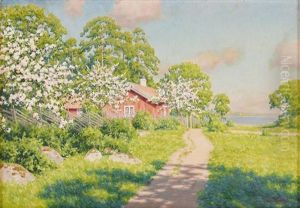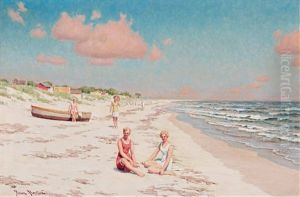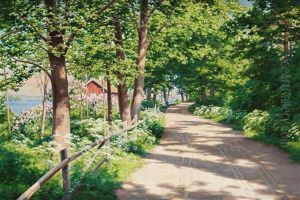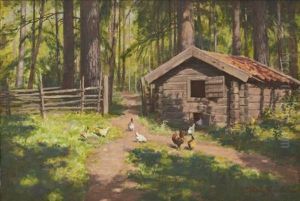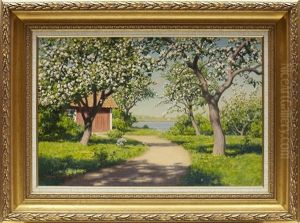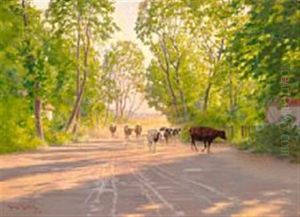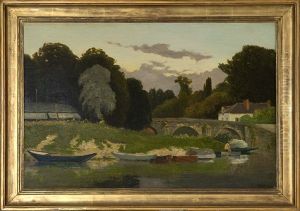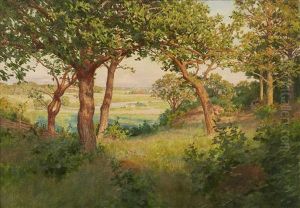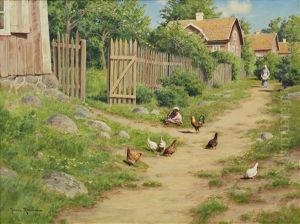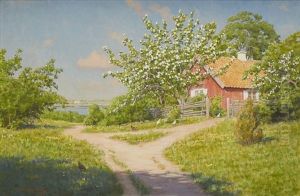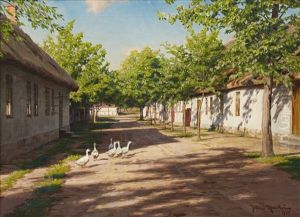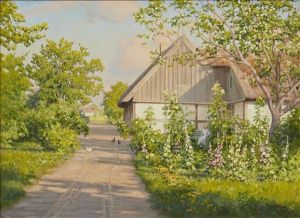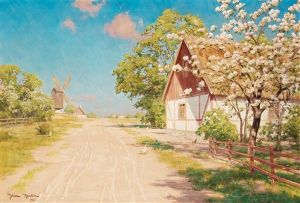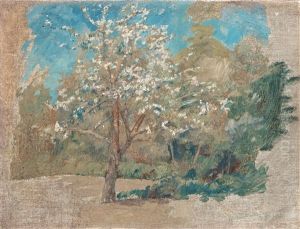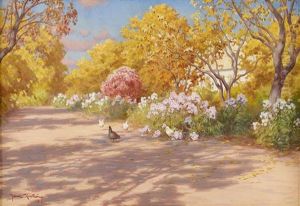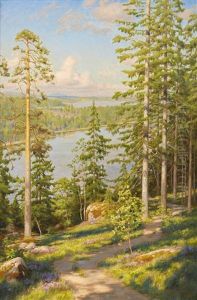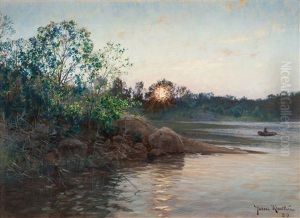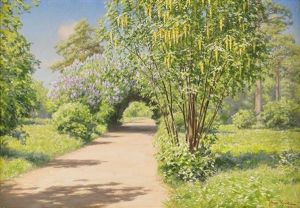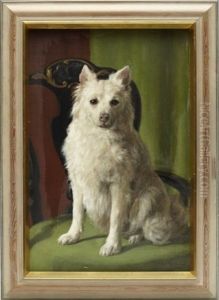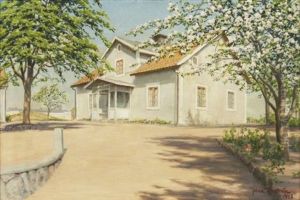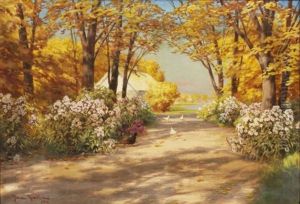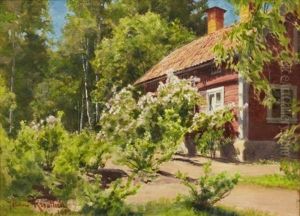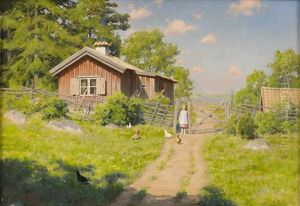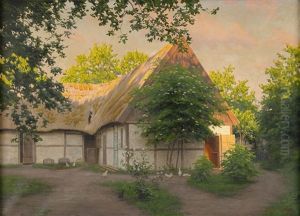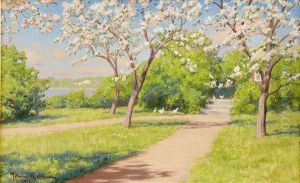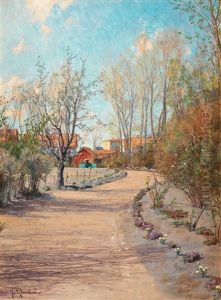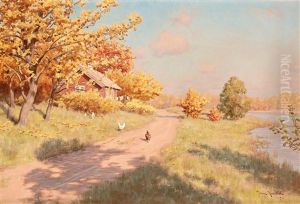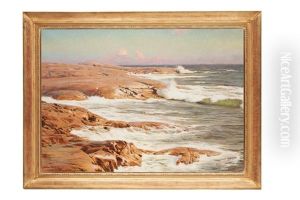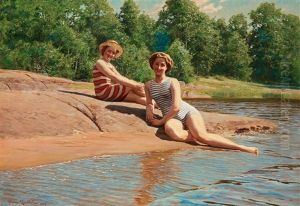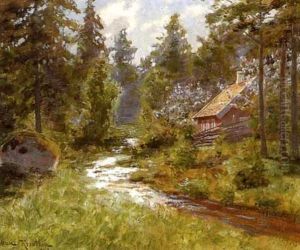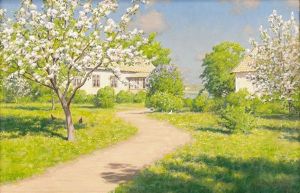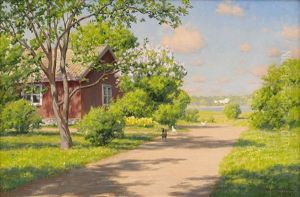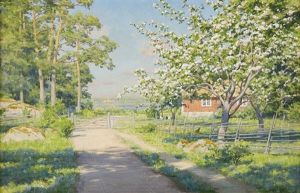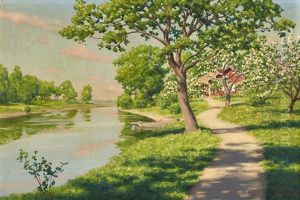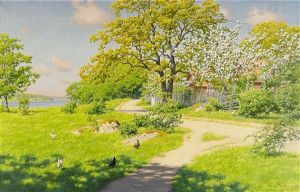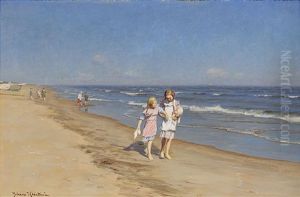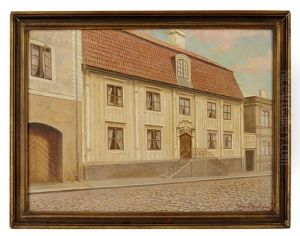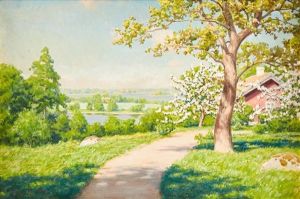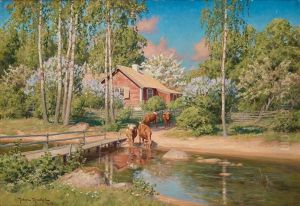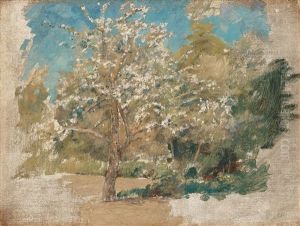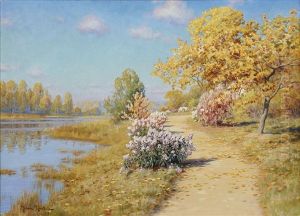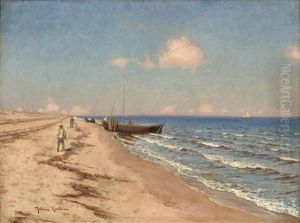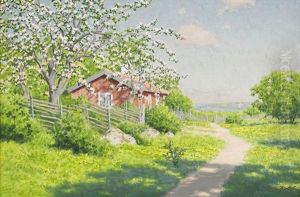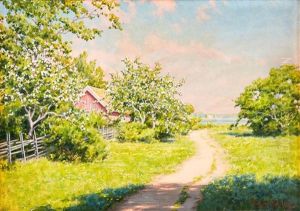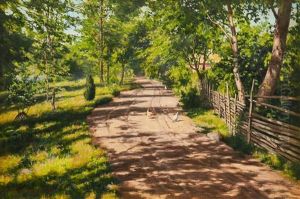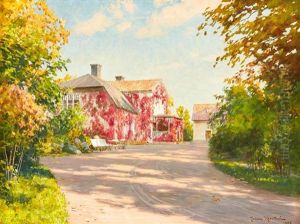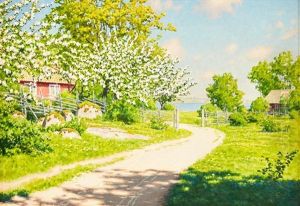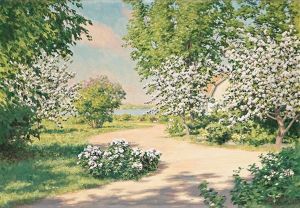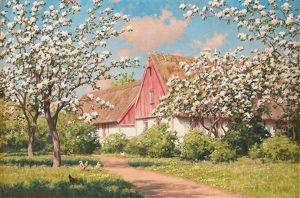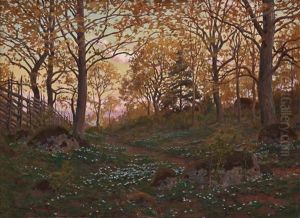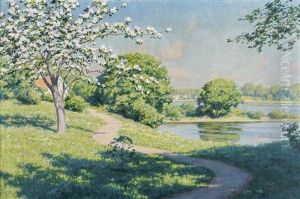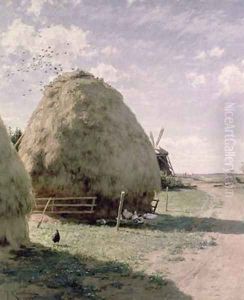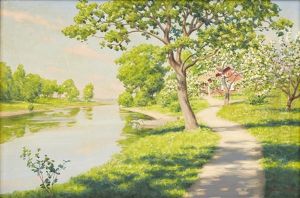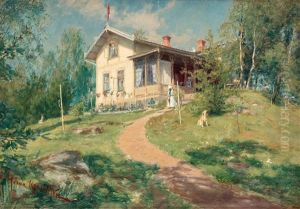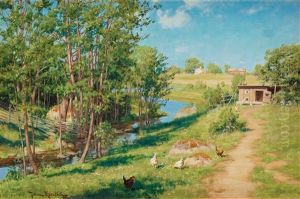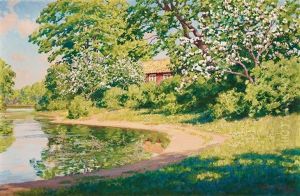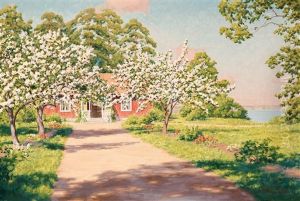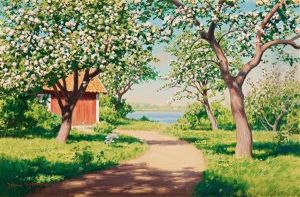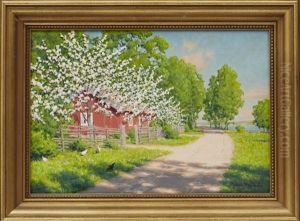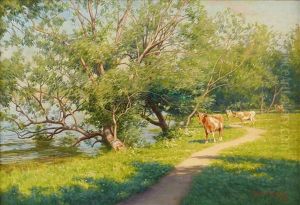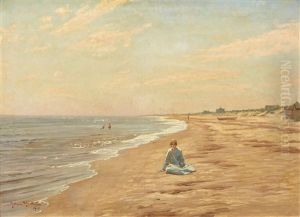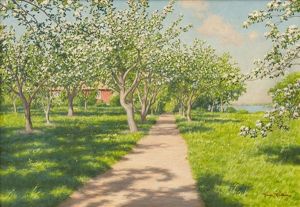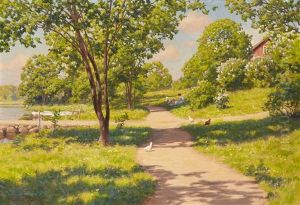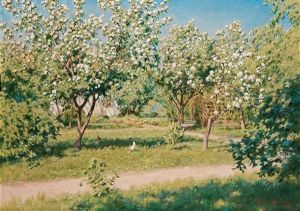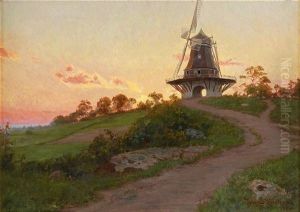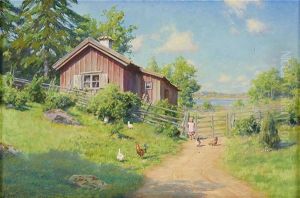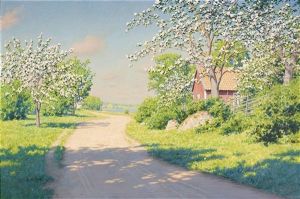Johan Fredrik Krouthen Paintings
Johan Fredrik Krouthén was a Swedish painter born on November 2, 1858, in Linköping, Sweden. He was one of the significant figures in Swedish art during the late 19th and early 20th centuries, known for his dedication to naturalism and his ability to capture the beauty of the Swedish landscape and rural life with a remarkable sense of realism and detail. Krouthén's early life in the picturesque surroundings of Östergötland had a profound influence on his artistic direction, embedding a deep appreciation for the natural world that would be evident throughout his career.
Krouthén began his formal art education at the Royal Swedish Academy of Arts in Stockholm in 1875, where he studied under the tutelage of renowned artists such as Per Daniel Holm and August Malmström. His time at the academy was instrumental in honing his technical skills and developing his distinctive style, which combined elements of realism and romanticism. Despite the prevailing artistic trends of his time, Krouthén remained committed to portraying the Swedish countryside and its inhabitants with authenticity and empathy, eschewing the more modernist and abstract movements that began to emerge during his career.
After completing his studies, Krouthén spent several years traveling and working in different parts of Europe, including a significant period in Paris, which was the epicenter of the art world at the time. However, unlike many of his contemporaries who were influenced by Impressionism and other avant-garde movements, Krouthén's work remained deeply rooted in the naturalistic representation of his subjects. His paintings often featured serene landscapes, idyllic rural scenes, and detailed portraits, characterized by their subtle use of light and color to evoke mood and atmosphere.
Throughout his career, Krouthén exhibited his work extensively both in Sweden and abroad, gaining recognition and accolades for his contributions to Swedish art. He was a member of various art societies and participated in numerous exhibitions, including the Paris Salon, where his work was well received. Despite his success, Krouthén remained closely connected to his native Linköping and the surrounding countryside, which continued to inspire his work until his death on December 8, 1932.
Johan Fredrik Krouthén's legacy is that of a masterful painter who captured the essence of Swedish rural life and landscapes with a profound sense of realism and beauty. His works remain highly regarded and are included in the collections of major museums in Sweden and internationally, continuing to attract admiration and interest for their technical excellence and emotive power.
